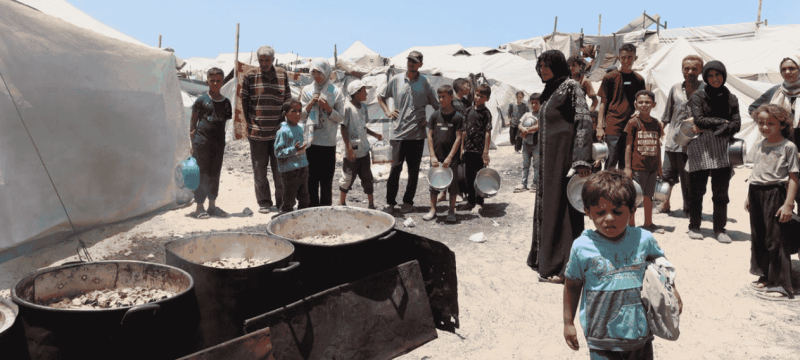UNICEF has issued a grave warning that Gaza City is rapidly becoming a “place where childhood cannot survive.” The ongoing conflict, compounded by severe famine and the collapse of essential services, has left nearly one million residents in dire conditions. Tess Ingram, UNICEF’s Communication Manager for the Middle East and North Africa, described the city as “a place of fear, flight, and funerals,” highlighting the catastrophic impact on children.
Over the past two weeks, more than 7,000 children under five have been enrolled in acute malnutrition recovery programs, marking a sharp increase from earlier this year. This surge reflects the deepening humanitarian crisis, with families struggling to access food and clean water. Many are subsisting on minimal meals like rice or lentils, often provided by under-resourced community kitchens.
The situation is further exacerbated by the collapse of essential services. Only 44 of UNICEF’s 92 outpatient nutrition treatment centers in Gaza City remain functional, depriving thousands of malnourished children of critical support. The few remaining hospitals are overwhelmed, with incubators operating at up to 200% capacity, putting newborns at heightened risk.
Ingram emphasized that the unthinkable is no longer a looming threat—it is already unfolding. She recounted meeting families who had fled multiple times, children separated from their parents, and mothers mourning the loss of their children to starvation. The collapse of infrastructure and the ongoing conflict have left the youngest and most vulnerable fighting for survival.
UNICEF is calling on the international community to take immediate action to prevent further catastrophe. The agency has been working to respond, providing ready-to-use therapeutic food for more than 3,000 acutely malnourished children in the past two weeks. However, the scale of the crisis requires a coordinated and sustained global response to ensure the survival and well-being of Gaza’s children.
Read More: Unicef Reports That Millions Of Children In Sudan Are Facing Hunger







